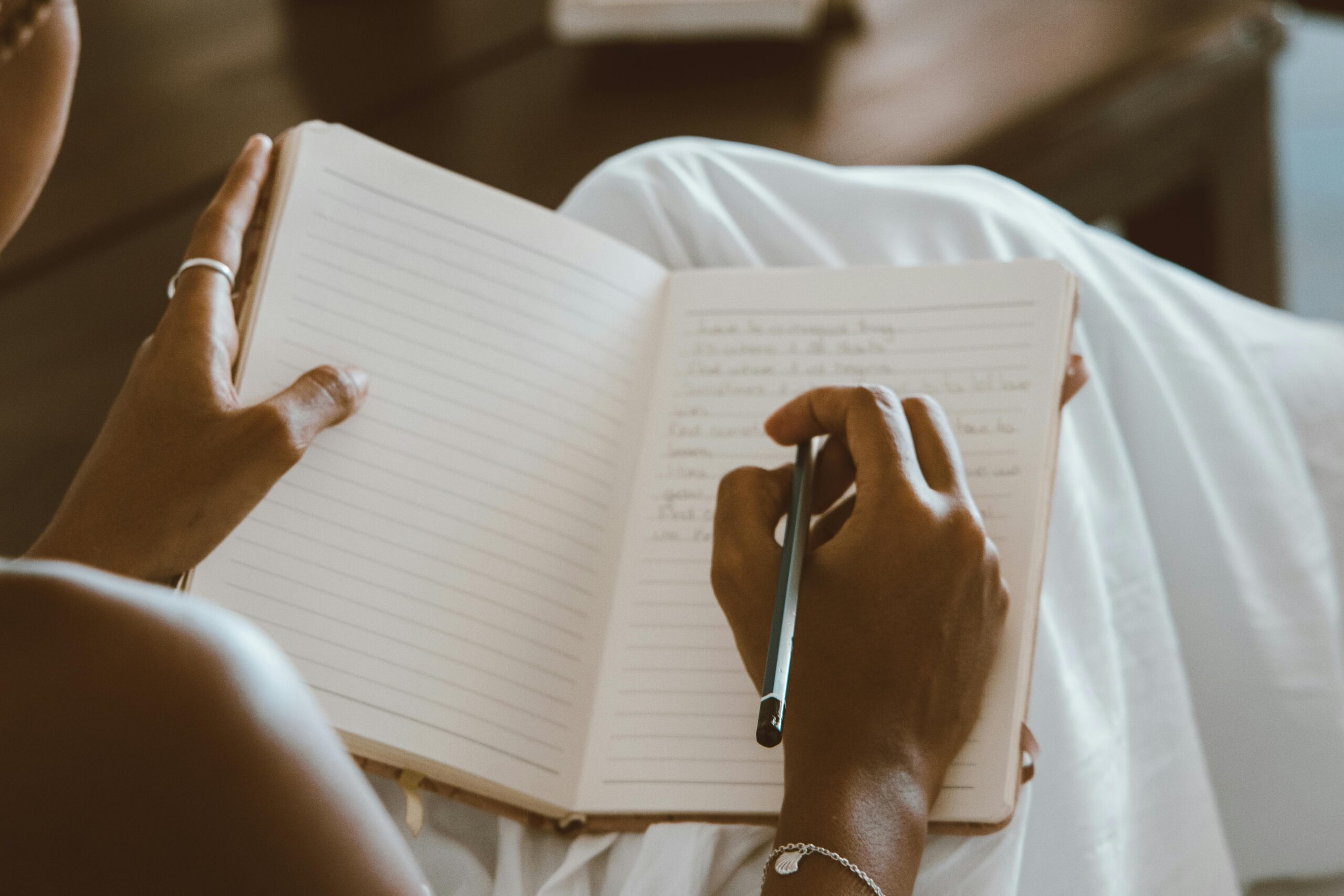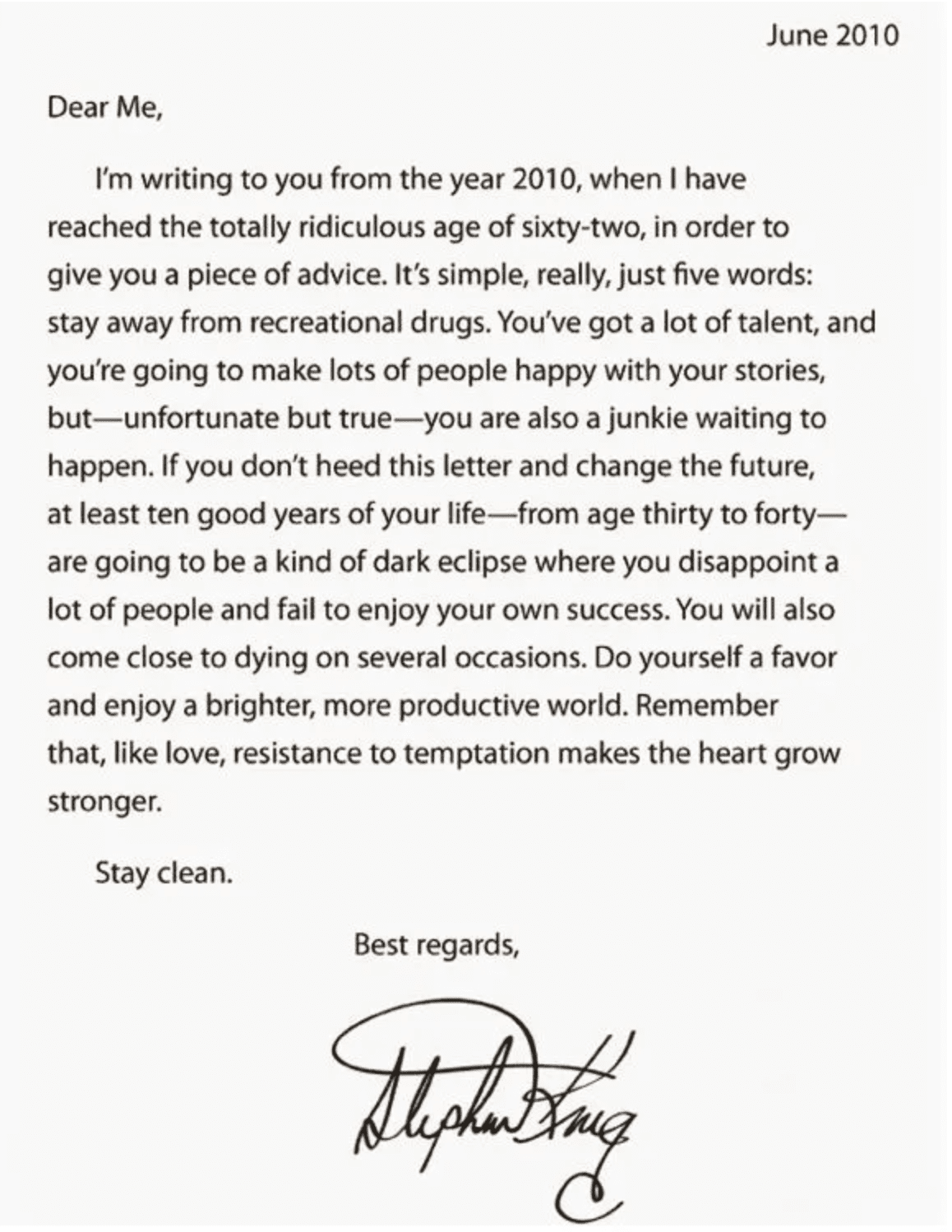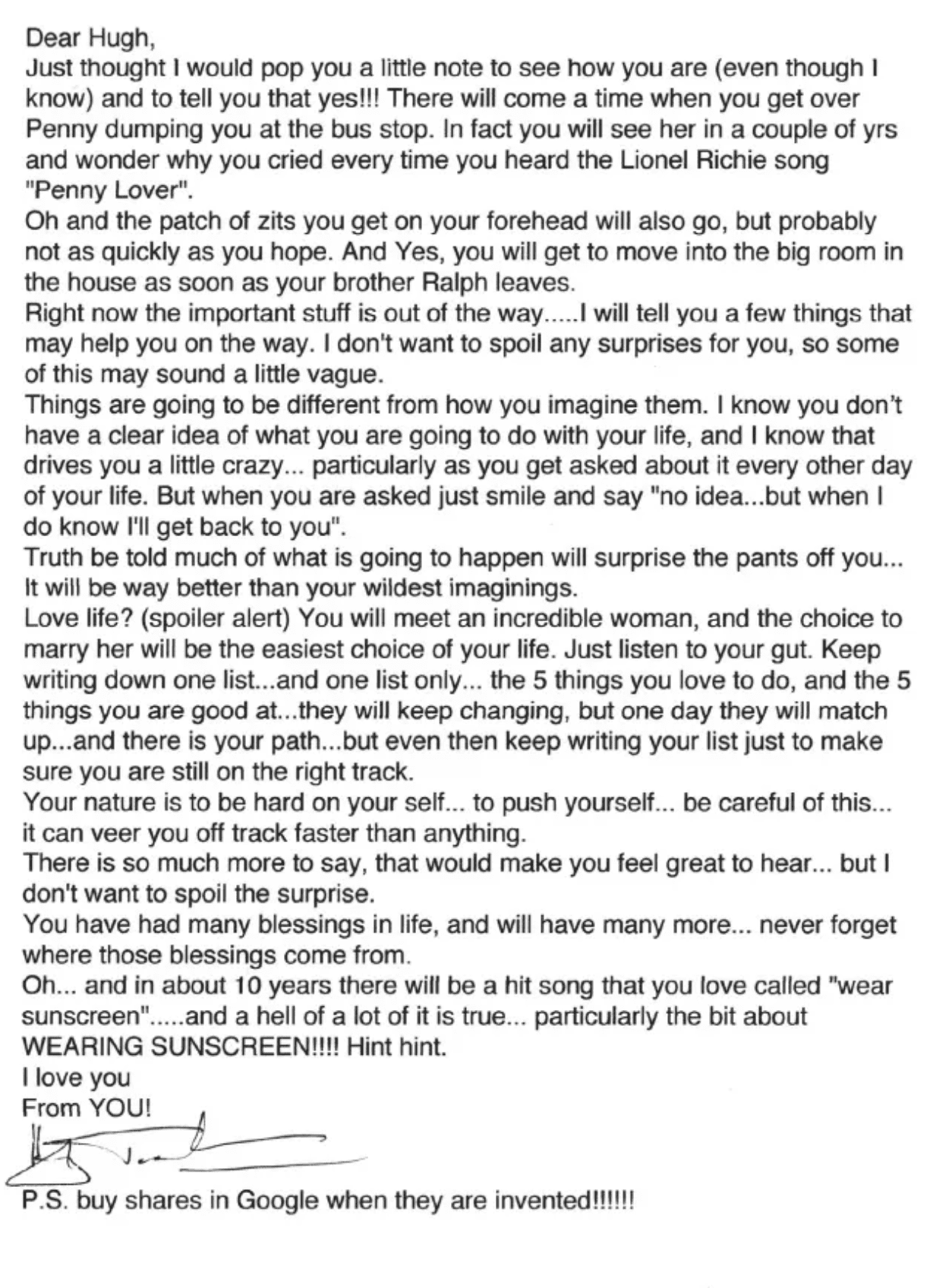
By: C Faye Alexander
Writing letters to myself—past, present, and future—has become a sacred part of my healing journey. It’s a fascinating, introspective place where self-compassion meets creativity. It’s where I remind myself that the messy survival is actually beautiful. Because sometimes, the only person who can reach me is myself. And the most powerful voice I need to hear isn’t one from the outside, but the one inside that’s been carrying the truth all along. And that kind of growth—the recognition—is worth celebrating.
Why Do Therapists Suggest Writing Letters to Yourself?
It’s been suggested, from different counselors and therapists over the years, to use a letter-writing practice as a way to work through my past trauma. I’ve written several letters to myself during different seasons of my life. I have one now that’s sitting in a sealed envelope dated to be opened and read in February of 2026.
I’m going to share some of the more personal reflections that really moved me, but first, I want to start with a few insights from professionals and experts whose work around letter-writing I found both grounding and inspiring.
Imagine writing a letter to someone important. Now think of yourself as that important someone. John F. Evans, Ed.D wrote that “transactional writing—or letter writing—gets you beyond what you thought you could not get over.” He states that letter writing can be therapeutic for the writer (you) as well as the recipient (also you), and it may be just the thing to help you change perspective.
In 2023, psychologists and clinical researchers in mental health did a randomized, controlled study where participants with high levels of shame wrote daily letters to themselves for 16 days. They were asked to write from a place of warmth and validation. The results showed that there was a large reduction in internal and external shame, general anxiety, and harsh self-criticism. These letters weren’t shared or graded; they were simply written, read aloud to the self, and held with compassion. The act of putting pen to paper gave them space to acknowledge pain without being consumed by it. As discussed by Stern and Engeln (2023) in the Discussion section of their article, self-compassionate letter writing “helps individuals develop a supportive self-dialogue, rather than a self-critical, shaming one.” In other words, it gives the writer a new voice.
Lauren Garvey, MS, CRC, MCC, a counselor and facilitator at Cancer Wellness Center at Piedmont, explains that letter writing—whether shared or kept private—can be a deeply healing practice for patients navigating serious illness. In her words, “writing is therapeutic because at the core of writing is self-expression.” She emphasizes that this kind of intentional expression not only supports emotional clarity, but can also impact us on a “cellular level,” suggesting that the benefits aren’t just emotional, they’re physiological too.
Garvey describes letter writing as distinct from general journaling because of its relational focus. It gives you the ability to say exactly what you want to say, as clearly and honestly as you can. Whether someone chooses to send the letter or not, the act of writing can help release difficult emotions, share gratitude, prepare for important conversations, or even create a meaningful legacy that speaks for them when words are no longer possible. You can read the full article here.
What Would You Want the Future You 25 Years From Now to Remember?
The most affecting article I encountered while researching for this blog was written by Brittany Chaffee, an author and brand strategist. I read quite a number of articles, but hers held my attention all the way through to the “About the author” section, which, I’ll admit, I devoured with equal enthusiasm. Her piece, A Letter to My Future Self (and How You Can Write One Too),” was published on Wit & Delight in 2022, in the wake of the pandemic. I rather admire what she’s doing, and more importantly, the way she’s doing it.
Brittany’s letter to her future self is both expansive and intimate. She doesn’t just catalogue goals and fears—she offers presence. She names her longings (“I want a baby. I don’t want a baby”), her contradictions, her grief, and her gratitude. She speaks to the version of herself decades down the line with a mix of reverence and vulnerability. What’s striking is how unpolished it feels, in the best way. It reads like someone trying to feel their way through time, not control it.
At the end of her piece, Brittany shifts focus to the reader, inviting them to try the exercise for themselves. She suggests a few simple but powerful steps for writing a letter to your future self, and I’ve included a few extra steps of my own:
-
- Write down what you want to remember.
- Write down what you don’t want to remember.
- List your favorite things right now.
- Jot down notes about how you’re feeling physically, as well as emotionally, right now.
- Write down lessons you’ve learned.
- Write down what you have forgiven, or are still trying to forgive.
- Ask your future self how you’re feeling now.
- Write a note to yourself in a year, three years, and five years. Put them in an envelope, seal them, and write down the dates when you can reread them.
Letters Through Time: Famous Examples of Writing to the Self
Maya Angelou once penned a letter to her 15-year-old self, reminding her to hold onto ambition and self-worth even in the dark times. It was both tender and fierce—a message she later shared on CBS This Morning. Angelou described it as a small but profound act of encouragement. Maya wrote:
Dear Me, Myself Then,
First, I know that you know how to listen. When I was 8 years old I became a mute and was a mute until I was 13, and I thought of my whole body as an ear. I could go into a crowd and sit still and absorb all sound. That talent or ability has lasted and served me until today.
Once you appreciate one of your blessings—one of your senses, your sense of hearing—then you begin to respect the sense of seeing and touching and tasting. You learn to respect all the senses.
Find a beautiful piece of art. If you fall in love with Van Gogh or Matisse or John Oliver Killens, or if you fall in love with the music of Coltrane, the music of Aretha Franklin, or the music of Chopin—find some beautiful art and admire it. Realize that it was created by human beings just like you—no more human, no less.
The person may have keener eyesight, a better ear. The person might have a more live body and can dance. But the person cannot be more human than you.
That is very important because that ensures you that you are a human being and nothing human can be alien to you.
You will be able to go around the world, learning languages, speaking to everybody, because no one can be more human than you or be less human.
They can be meaner or crueler, or sweeter or prettier, younger, richer, but they can’t be more human than you. Remember that.
Another favorite author of mine, Stephen King, contributed a famously succinct note to Dear Me: A Letter to My 16‑Year‑Old Self, a collection edited by Joseph Galliano and published in 2011, which featured 75 luminaries such as J.K. Rowling and Alice Cooper.
In this letter, King writes to his younger self with the kind of honesty that doesn’t flinch. He doesn’t sugarcoat the truth—he warns himself plainly about the years lost to addiction, the people he’ll hurt, and the close calls he’ll face. But even as he lays out the stakes, there’s a thread of hope running through it. You can feel the care behind the warning, and the belief that it’s not too late to choose better. It’s direct, a little sharp, and deeply human:

I want to share one last letter from Dear Me: A Letter To My 16-Year-Old Self—this one from Hugh Jackman. It’s a warm, personal note to his younger self that balances honesty with humor. Hugh doesn’t shy away from the awkward moments or the heartbreaks, yet he writes with a tone that says: It all works out. There’s a real tenderness in the way he gives his younger self permission not to have everything figured out, while nudging him to stay open to where life will lead.
What makes this letter stand out is the way Hugh blends humility with hope. He pokes fun at himself while gently guiding his younger version toward the choices that mattered—listening to his gut, and paying attention to what he loves. It’s a letter that reminds us that clarity doesn’t always come early, but it does come. It reminds us that the journey, with all its stumbles and surprises, is worth taking:

I’d love to invite you to 12 Letters—a free writing journey from Tiny Art Stories. It’s self-paced and designed to help you explore what’s been sitting quietly in your chest, waiting to be written. Maybe your letter starts with something simple, like, “Dear self, I forgive you for the years you spent just trying to survive.” Or, “Dear self, leaving was the bravest thing you’ve ever done.” Maybe you could write, “Dear self, thank you for coming back to me.”
Whatever you need to say—write it down. No one else needs to read it. Just you. And maybe one day, the future you will find it and say, “Thank you. I needed that.”
Either way, there’s something rather remarkable about reaching across time to say, “I see you. I’m here.”
This current version of myself is by far my favorite. And I’ve felt that way before, which tells me something beautiful: There’s a future version of me I haven’t met yet, and when I do, I know I’ll fall in love with her too, just like I love who I am today. Kind of incredible, isn’t it?
Here are 12 lessons that I hope she remembers, wherever she is:
- Everything you are worried about right now, you can’t take with you when you leave this earth. Enjoy the day.
- You do not have to chase what has already chosen you.
- Stay connected to people who tell you the truth.
- Your stability is your responsibility.
- You are safe to feel, safe to rest, safe to let go in your own time.
- Don’t get so used to the palm trees that you forget to admire them.
- Stop making decisions in fear. Be bold. Be true. Even when someone doesn’t get it, someone else does.
- Never retreat from a confrontation that might have something valuable to teach you about your situation.
- Draw. Paint. Create. Do art at least once a week.
- Food is better when it’s shared.
- Assume the best in every situation and every person.
- Honor your worthiness first. Whoever is meant to stay, will stay.
Each of these lessons has come from moments I didn’t always understand until much later. Maybe you’ll recognize some of them in your own life, or maybe your list will look completely different. Either way, it’s worth writing down.
Start with honesty, and see where it takes you.
Image Source
Letters excerpted from: “What Would You Write to a 16-Year-Old Self?” by Ellyn Spragins on Medium

No comments yet.